The history of protest outfits at awards: From the Oscars in war time to the Golden Globes 2018
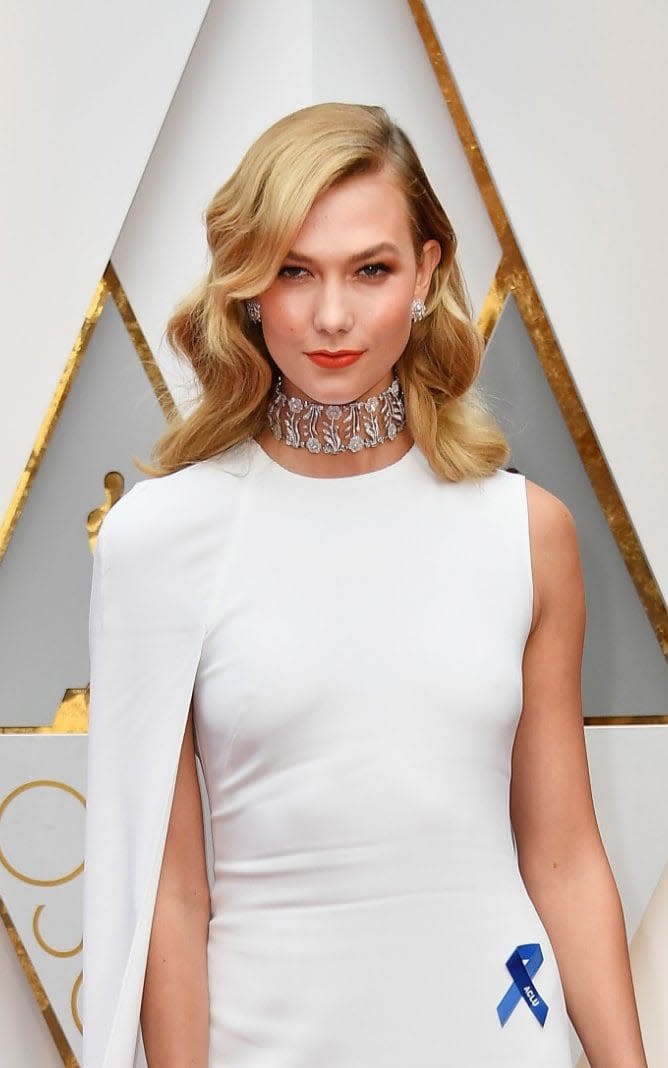
Tomorrow evening, Hollywood's brightest and best will gather at the Beverly Hilton, Beverly Hills for the annual Golden Globes awards. It's one of the biggest nights on the a-list calendar, second only to the Oscars and perhaps the Met Gala. But this year's ceremony is set to be different. Instead of a parade of couture gowns in a rainbow of colours, many of the industry's highest profile actresses (and some of its actors) will be wearing black, in support of the Time's Up movement against sexual harrassment.
A post shared by America Ferrera (@americaferrera) on Jan 1, 2018 at 2:47pm PST
America Ferrera promotes Time's Up
In the wake of the Weinstein scandal and the many high profile actors who have since had allegations filed against them, the Time's Up initiative was formed by 300 women working in the industry - from a-list actresses to directors, writers, agents and producers - to provide a legal defense fund for women who need it and work towards legislation to penalize companies that overlook harassment.
Ashley Judd, America Ferrera, Emma Stone, Natalie Portman, Reese Witherspoon and Kerry Washington are just a few of the women fronting the movement, with many others pledging their support and donating money. And on Sunday, the world will be able to see the extent of the movement, which has asked supporters to eschew colour in protest of an industry that has tolerated widespread and systemic abuse of power.
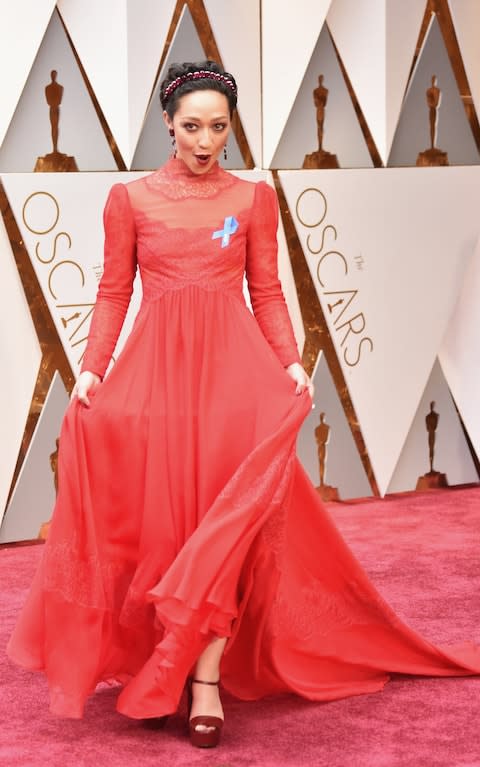
Actresses and actors have long used the spotlight of acceptance speeches to voice political protests, and in the last few years, many have boycotted the Oscars following the #OscarsSoWhite campaign highlighting a history of racial inequality at the awards. But this is not the first time that politics has hijacked the global reach - and instant impact - of the glamorous red carpet.
The most glamorous looks from the Oscars 2017 red carpet
Last year's Academy Awards ceremony saw actors and actresses wearing Planned Parenthood pins and American Civil Liberties Union (ACLU) blue ribbons following Donald Trump's travel ban, with safety pins being worn throughout the awards season in protest of his presidency.
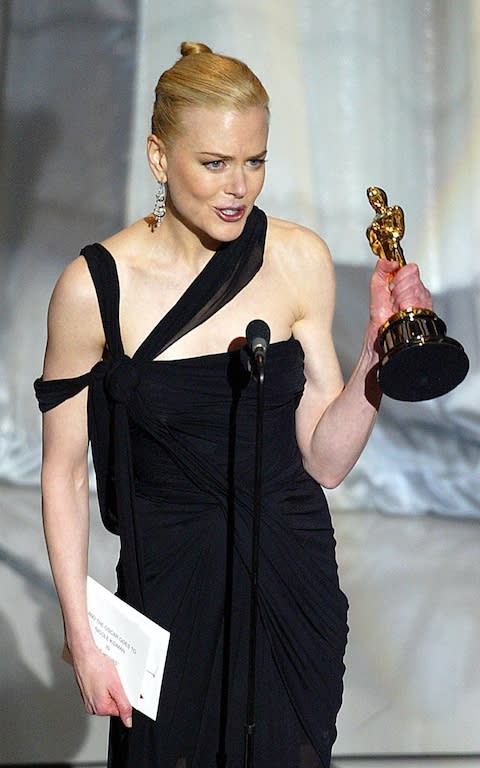
As the 2003 Academy Awards fell during the Iraq war, there was call for them to be cancelled. When it wasn't, the majority of the guests chose to wear black - including Nicole Kidman, who won Best Actress on the night. "Why do you come to the Academy Awards when the world is in turmoil?" She asked in her acceptance speech. "Because art is important." And while some actresses did wear colour, there were only 14 photographers on the red carpet (where usually there are hundreds) and no press.
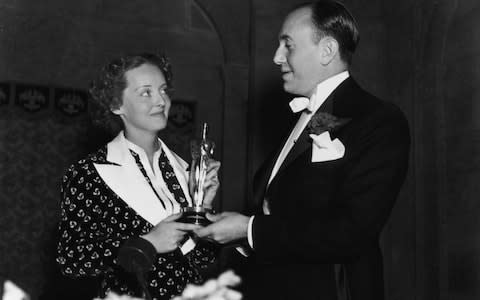
Back in 1993, Susan Sarandon and Tim Robbins - both wearing red ribbons - took a moment from announcing an award winner to ask that 200+ Haitians being held at Guantanamo bay because they were HIV positive be granted entry to the country.
But protest dressing dates back much further indeed. At the 1936 Oscars, Bette Davis wore an Orry-Kelly dress with wide white lapels to accept her Best Actress. Apparently, she chose the dress as it looked like a domestic uniform, a dig at her contract with Warner Bros, which she was trying to break. And in 1941, guests at the war-time Academy Awards were asked to wear muted tones: Best Actress winner Ginger Rogers' American-made grey lace dress used a minimum of fabric - a gesture of solidarity in a time of austerity.
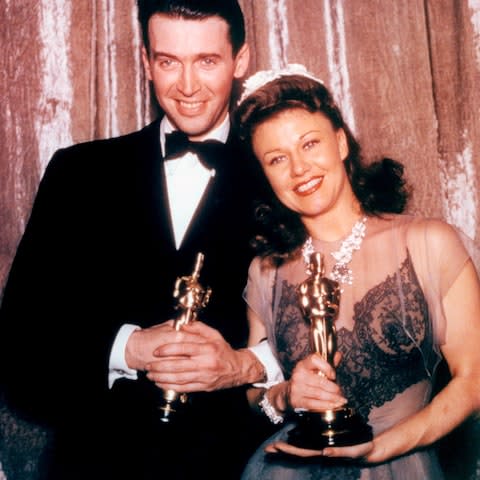
The palette may be decided, but it remains to be seen whether actresses will pare back the glamour - or indeed just paint their usual couture ballgowns black.
